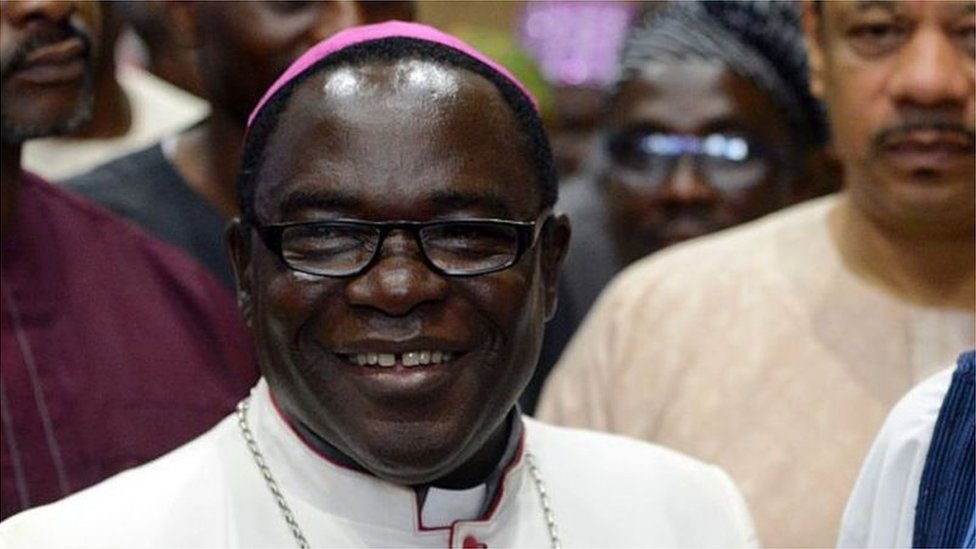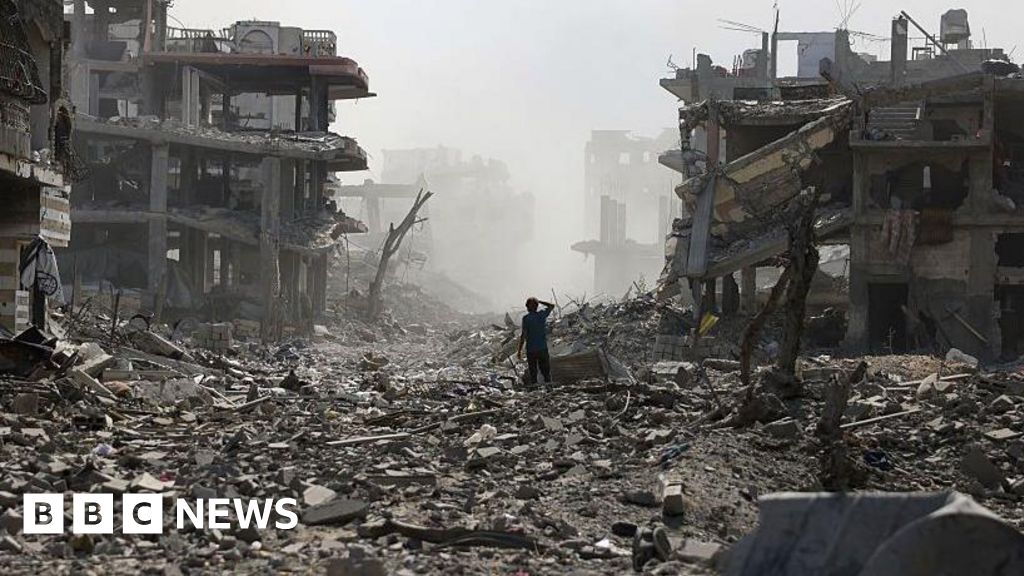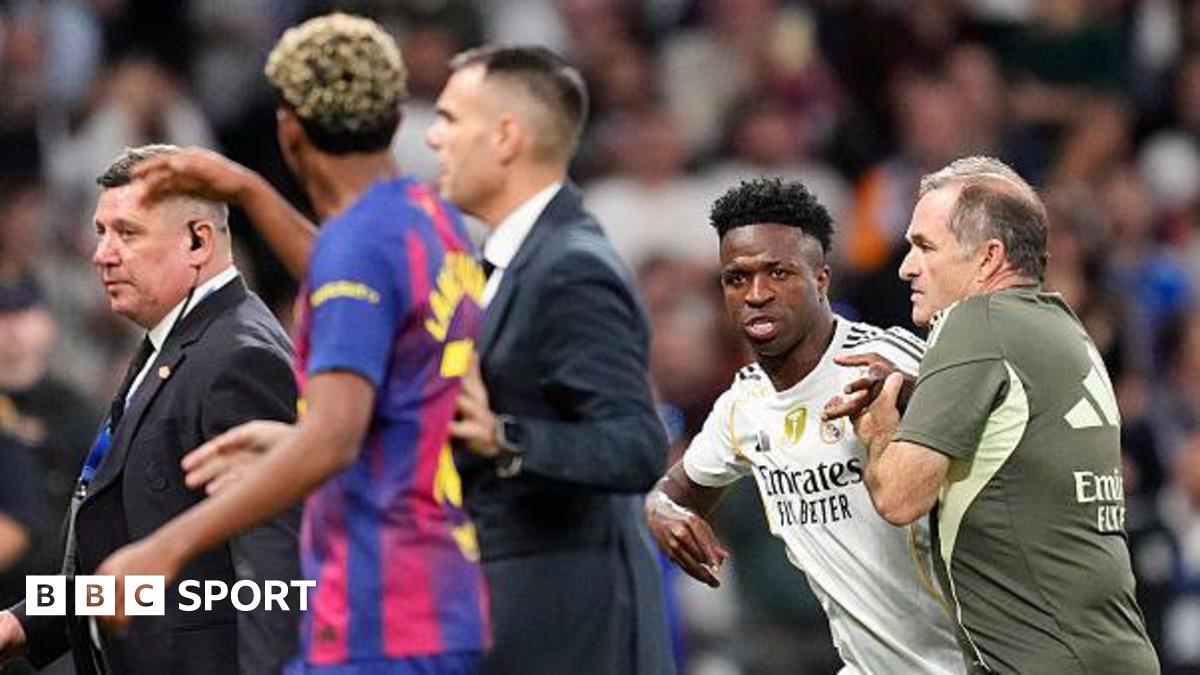Technology
Ichabod: Outrage as Bishop Kukah Accused of Turning His Back on Persecuted Christians
By Oscar Okhifo
Outrage has trailed comments by the Catholic Bishop of Sokoto Diocese, Most Rev Dr. Matthew Hassan Kukah, urging the international community not to classify Nigeria as a country of particular concern over religious freedom violations.
Many Nigerians say the cleric has abandoned the victims he once defended.
Bishop Kukah is facing mounting criticism over what many Nigerians describe as a shocking departure from his long-held stance on religious persecution in the country.
The controversy erupted after the outspoken cleric urged the international community not to re-designate Nigeria as a “Country of Particular Concern” (CPC) over alleged violations of religious freedom.
Bishop Kukah argued that such a designation would harm interfaith dialogue and worsen Nigeria’s fragile peace.
“We are not dealing with people going around wielding machetes to kill me because I am a Christian,” Kukah said.
“I live and work in Sokoto, right in the womb of Islam, where collaboration between Christians and Muslims remains possible.”
The statement has, however, drawn widespread outrage from sections of the Christian community, civil rights advocates, and ordinary Nigerians who accuse the bishop of turning his back on victims of religious violence he once passionately defended.
“When a once very sane and respected Catholic bishop turns turncoat, he should expect a sea of backlash,” one aggrieved Catholic faithful said.
Another critic, Mr. Paul, expressed disbelief over Kukah’s remarks.
“The number of Catholic priests killed in Benue, in his home state of Kaduna, the number of seminarians attacked or abducted in the North in the last ten years ought to have guided the Bishop,” he said.
A Christian who requested anonymity was even more scathing.
“Who doesn’t know about the tragic persecutions of Christians in the North? Even those who kidnapped and killed Catholic priests in Edo came from a certain part of the country and practice a certain religion. Some seminarians are still in captivity in Edo North.
“If the Nigerian government is playing politics with this, America should help us! The persecutions are too much,” he lamented.
Another Catholic faithful described Kukah’s recent position as a “betrayal of the faith.”
“The number of Christians slaughtered in cold blood in Plateau, Benue, Southern Kaduna, Borno, Sokoto, and other parts of Nigeria ought to make him circumspect. I have lost my respect for him,” the source said.
Across social media, radio talk shows, and church gatherings, critics argue that Kukah’s new tone amounts to a betrayal of his earlier prophetic voice, one that for years, condemned the unchecked killings of Christians and clergy in northern Nigeria.
They recall how the Bishop once lamented that “killing Christians is the only crime not punished in Nigeria”, and wonder why he now appears to defend the same government’s inaction.
Some have gone further to accuse him of aligning with political interests while some are of the
the opinion that “the glory of the Bishop has departed,”
“He should just join the ruling party. He talks about interfaith dialogue, but how has that mitigated the violence against his brethren? They are always stooges of every government in power.”
Another respondent added,
“We urge him to formally join the ruling party since he now seems to defend their failures. He now sees nothing wrong with those who shield the killers and even aid and abet the killers of Christians in Nigeria.”
While the Muslim Rights Concern (MURIC) praised Kukah’s statement as a balanced reflection of Nigeria’s complex reality, several Christian groups insist that his comments undermine ongoing efforts to secure international pressure on the government to address religious persecution.
They maintain that killings of priests, burning of churches, and displacement of Christian communities in Benue, Plateau, and Southern Kaduna remain frequent realities.
Analysts say Kukah’s evolving rhetoric underscores a deeper divide within Nigeria’s faith community. Between those who advocate diplomatic caution and those who insist that only global accountability can halt the bloodshed.
Whether viewed as a peacemaker or a backslider, Bishop Kukah’s recent remarks have stirred one of the fiercest debates in recent memory, forcing many to ask:
Has the revered cleric abandoned his moral compass or is he simply choosing a higher path of reconciliation?
Whichever way, the Catholic Bishop of Sokoto Diocese has unnerved many Christians who believe there are indeed unchecked, organized killings of Christians and attacks on Christian formations and facilities across the country.
Has his glory truly departed? The future will explain better.
By Oscar Okhifo
Outrage has trailed comments by the Catholic Bishop of Sokoto Diocese, Most Rev Dr. Matthew Hassan Kukah, urging the international community not to classify Nigeria as a country of particular concern over religious freedom violations.
Many Nigerians say the cleric has abandoned the victims he once defended.
Bishop Kukah is facing mounting criticism over what many Nigerians describe as a shocking departure from his long-held stance on religious persecution in the country.
The controversy erupted after the outspoken cleric urged the international community not to re-designate Nigeria as a “Country of Particular Concern” (CPC) over alleged violations of religious freedom.
Bishop Kukah argued that such a designation would harm interfaith dialogue and worsen Nigeria’s fragile peace.
“We are not dealing with people going around wielding machetes to kill me because I am a Christian,” Kukah said.
“I live and work in Sokoto, right in the womb of Islam, where collaboration between Christians and Muslims remains possible.”
The statement has, however, drawn widespread outrage from sections of the Christian community, civil rights advocates, and ordinary Nigerians who accuse the bishop of turning his back on victims of religious violence he once passionately defended.
“When a once very sane and respected Catholic bishop turns turncoat, he should expect a sea of backlash,” one aggrieved Catholic faithful said.
Another critic, Mr. Paul, expressed disbelief over Kukah’s remarks.
“The number of Catholic priests killed in Benue, in his home state of Kaduna, the number of seminarians attacked or abducted in the North in the last ten years ought to have guided the Bishop,” he said.
A Christian who requested anonymity was even more scathing.
“Who doesn’t know about the tragic persecutions of Christians in the North? Even those who kidnapped and killed Catholic priests in Edo came from a certain part of the country and practice a certain religion. Some seminarians are still in captivity in Edo North.
“If the Nigerian government is playing politics with this, America should help us! The persecutions are too much,” he lamented.
Another Catholic faithful described Kukah’s recent position as a “betrayal of the faith.”
“The number of Christians slaughtered in cold blood in Plateau, Benue, Southern Kaduna, Borno, Sokoto, and other parts of Nigeria ought to make him circumspect. I have lost my respect for him,” the source said.
Across social media, radio talk shows, and church gatherings, critics argue that Kukah’s new tone amounts to a betrayal of his earlier prophetic voice, one that for years, condemned the unchecked killings of Christians and clergy in northern Nigeria.
They recall how the Bishop once lamented that “killing Christians is the only crime not punished in Nigeria”, and wonder why he now appears to defend the same government’s inaction.
Some have gone further to accuse him of aligning with political interests while some are of the
the opinion that “the glory of the Bishop has departed,”
“He should just join the ruling party. He talks about interfaith dialogue, but how has that mitigated the violence against his brethren? They are always stooges of every government in power.”
Another respondent added,
“We urge him to formally join the ruling party since he now seems to defend their failures. He now sees nothing wrong with those who shield the killers and even aid and abet the killers of Christians in Nigeria.”
While the Muslim Rights Concern (MURIC) praised Kukah’s statement as a balanced reflection of Nigeria’s complex reality, several Christian groups insist that his comments undermine ongoing efforts to secure international pressure on the government to address religious persecution.
They maintain that killings of priests, burning of churches, and displacement of Christian communities in Benue, Plateau, and Southern Kaduna remain frequent realities.
Analysts say Kukah’s evolving rhetoric underscores a deeper divide within Nigeria’s faith community. Between those who advocate diplomatic caution and those who insist that only global accountability can halt the bloodshed.
Whether viewed as a peacemaker or a backslider, Bishop Kukah’s recent remarks have stirred one of the fiercest debates in recent memory, forcing many to ask:
Has the revered cleric abandoned his moral compass or is he simply choosing a higher path of reconciliation?
Whichever way, the Catholic Bishop of Sokoto Diocese has unnerved many Christians who believe there are indeed unchecked, organized killings of Christians and attacks on Christian formations and facilities across the country.
Has his glory truly departed? The future will explain better.




